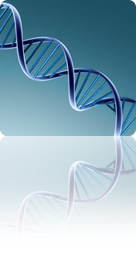
The research group on Genetics, is a UPF research group that is associated with the IMIM and it was created in April 2000. It is currently a multidisciplinary team integrated bymedical doctors, biologists, biostatistician, psychologist, information scientists and technicians. There are some clinical duties coordinating all medical genetics activities and multidisciplinary clinics at the Hospital Vall d’Hebron since 2007 (previously at the Hospital del Mar). In addition to the PI, there are two senior investigators: Dr del Campo, main responsible of clinical research at the hospital, and Dr Campuzano, coordinator of research in animal models.
The main goals of our research are several neurodevelopmetal genetic disorders caused by genomic mutations, integrating clinical and basic molecular research with the use of murine models, along with translational research in medical genetics. These are the main achievements in the different areas during the past 5 years:
-
Pathogenic mechanisms of Williams-Beuren syndrome (WBS)
WBS is a neurodevelopmental disorder with a prevalence of 1:7500, caused by a recurrent heterozygous deletion of in 7q11.23. Our group has been working on this topic as a continuation of Pérez-Jurado postdoctoral research and we have contributed to the mapping of this complex genomic region, providing tools for functional gene studies and improved molecular analysis of
patients.
-
Study of structural variants of the human genome in diseases
Genomic duplication followed by adaptive mutation is considered one of the primary forces for evolution of new function. Duplicated sequences are also dynamic regions of rapid structural change during the course of chromosome evolution. The long-term goal of the research is to understand the evolution, pathology and mechanism(s) of recent gene duplication within the human genome, the development of methods to assess their variation, the detection of signatures of rapid gene evolution and ultimately the correlation of this genetic variation with phenotypic differences and disease.
-
Translational research in medical genetics.
Our group coordinated the Network of Centers of Clinical and Molecular Genetics (RECGEN), integrated by 33 groups from 10 Centers. RECGEN generated important tools for collaborative research in genetics, some of which have been incorporated to the new structure of CIBERER (
www.ciberer.es). We also developed telegenetica, as an online diagnostic and counseling advice resource for medical professionals, which was later implemented in Chile in collaboration with Chile University. The group has also coordinated Orphanet Spain (
www.orpha.net), a web with rather complete information about each rare disorder including biomedical information written by experts (encyclopedia) along with a database reporting the available clinics, diagnostic labs, research projects, clinical trials, orphan drugs and patient support groups, also linked to the CIBERER. I addition to the diverse publications, our research has obtained relevant translational results, contributing to the diagnosis of multiple patients, the development of novel tools useful for the clinical labs and, currently, the evaluation of potential therapeutic agents for a rare disease.

